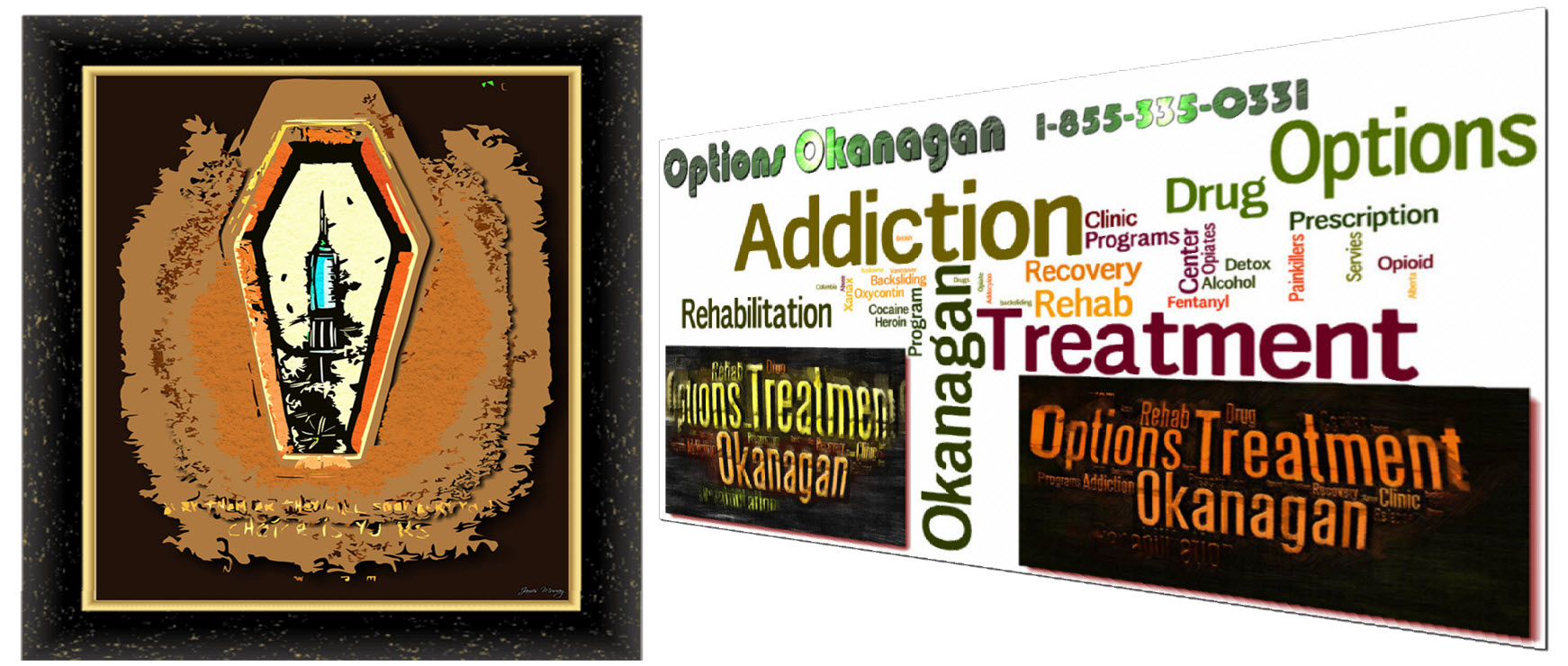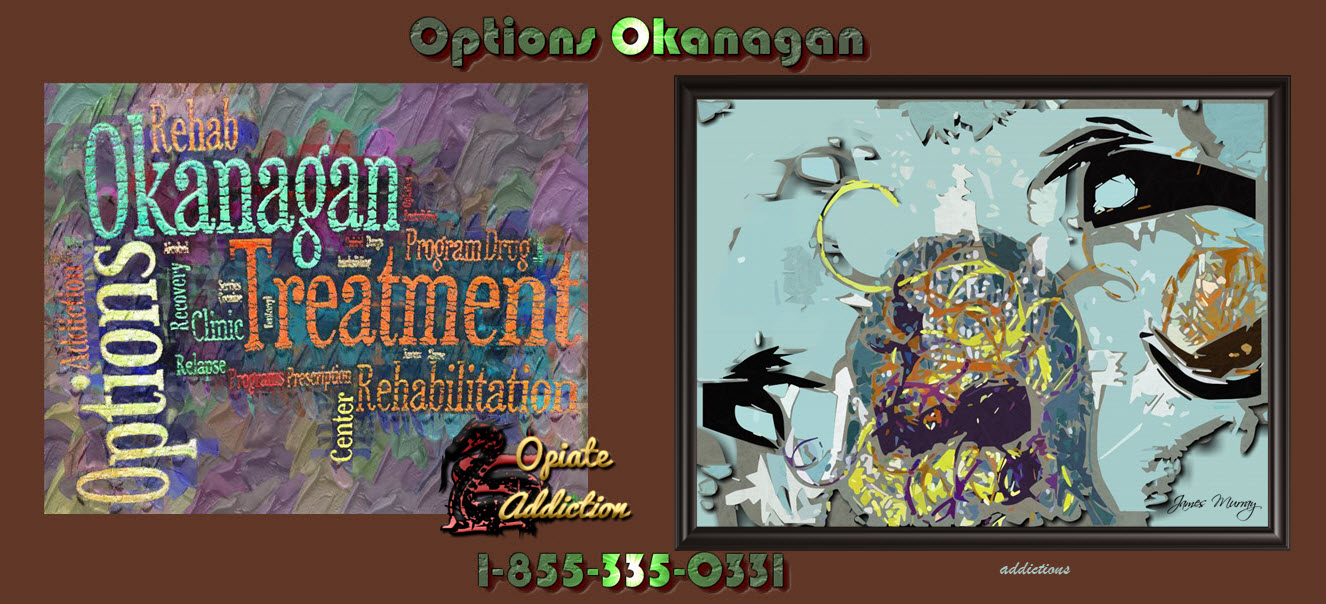What happens in an opioid overdose? – Opioid Rehab Programs for recovering addicts in British Columbia and Alberta – Options Treatment Center in Kelowna, British Columbia treating opioid, drug, opiate, fentanyl, heroin and alcohol addiction and recovery.
Opioid Rehab In BC and Alberta
Opioids are a class of drugs used to block pain signals between the brain and body and are prescribed to treat moderate to severe pain. Some users are attracted to opioids, prescribed or not, because they can make them feel calm, happy, or euphoric. This high effect lasts only a short time and makes a person crave the drug even more, which is why opioids are so addictive. Some of the most common examples of opioids are prescription pain relievers such as Vicodin, Percocet, and highly addictive OxyContin. While carfentanil, fentanyl, and heroin are among the most commonly used illegal opioids.
How much is too much opioids?
Both prescription and illegal opioids can have serious consequences if abused. When a person takes a toxic amount of an opioid, an overdose occurs. But how do you know how much of a dangerous opioid is? Well, there is no easy answer to that. The problem is that opioids affect everyone differently and an overdose depends on many factors. Some factors to consider are the potency of the substance, tolerance to the drug, a person’s weight, and general health.
These factors are important to consider when determining how prone a person is to overdose. For example, if someone only takes heroin a few times and then suddenly increases the dose, they are more likely to overdose because their body may not be able to handle an overdose of the drug.
There are various cases where individuals may not even realize that their opioid intake has increased dramatically because synthetic opioids such as fentanyl may be unknowingly mixed into their medications. Drug pushers add this powerful substance fentanyl to increase the potency of a drug like heroin in a cheaper and quicker way. Just 2 milligrams of fentanyl is enough to cause death. In the year 2021, fentanyl is reported to be the leading cause of death in Canada and the United States for individuals aged 18 to 44, and a record total of over 105,000 opioid-related deaths in the US alone.
How does an opioid overdose occur?
An opioid overdose can happen when individuals take too much of the substance alone or mix an opioid with alcohol or other medication. It is a dangerous practice for individuals to use a drug such as cocaine or other stimulants along with opioids, and depressants, to increase the euphoric effect in an attempt to eliminate the negative effects of the drug. This mixture, dubbed “Speedballing”, dramatically increases and then decreases a person’s heart rate. This push-and-pull effect puts extreme stress on the heart and the brain of the user, further increasing the chances of them overdosing.
So what happens to an individual’s body when they overdose on prescribed painkillers, heroin, or fentanyl? When large amounts of opioids enter a person’s body, they bind to receptors in the brain that regulate breathing. When opioids interact with brain receptors, cell activity slows down, affecting communication between the brain and the rest of the body. Since the brain controls all organs a person’s brain activity slows down, then the heart rate and lung breathing slow down. Without pumping enough oxygen to the brain, the individual’s brain can become permanently damaged and the organs of the user begin to shutdown.
What are the signs of an opioid overdose?
It may be within minutes or even seconds when the effects of a drug overdose can happen. Common signs of an opioid overdose include loss of consciousness, small pupils of the eye, difficulty breathing, shortness of breath (choking), gagging, blue or purple lips or fingertips, lack of response to loud noises, tremors, or painful stimuli.
If you see somebody experiencing any of these symptoms and you think that person has overdosed on painkiller meds, heroin, fentanyl, or carfentanil, call 911 immediately. While you wait for paramedics to arrive, you can use naloxone, an opioid overdose reversal drug.
Options Okanagan Opiate and Alcohol Treatment Centers in Kelowna, Salmon Arm and Vancouver, British Columbia – Men and Women are recovering and healing from Alcohol and Drug Abuse at our treatment center here in the Okanagan right now.
Our unique and distinctive Opiate Drug and Alcohol treatment program allow men and women to come in from Calgary as well as Edmonton as we offer airport pickup.
Numerous clients come to us from Vancouver, Calgary, and Edmonton and other locations in Alberta and even other provinces for Opiate addiction treatment, heroin drug treatment, many other drug and alcohol addictions for rehabilitation because of the uniqueness of our treatment center.
Our (Kelowna ) Alcohol and Drug Treatment Program Location:
(Not Mailing Address) Contact Us – Web Page
For Mail Delivery :: Please contact each center for correct mailing addresses, also this location is the location of our residential treatment programs in Kelowna. Please call Toll Free 1-855-335-0331 to contact the treatment center you are going to for the address and directions.
Options Okanagan Drug and Opiate Treatment Center
551 Sherrydale Crescent, Kelowna, British Columbia, V1V 2E6
Toll-Free Phone Number: 1-855-335-0331




